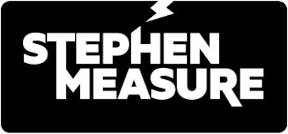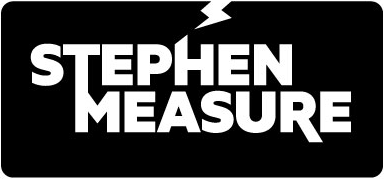Identifying What Just Bloodied Your Face
November 3, 2014
If you've ever been blindsided by an accusation of bigotry when you thought you were just talking about behavior, here is an explanation to help you understand what just bloodied your face.
The Shame of Past Racism
The root of it all is racism; or, more accurately, the shame of past racism. We know it was wrong. We hear about the horror of slavery and segregation, and we are shamed that it happened in our own country and by our own ancestors. We are grateful for the bravery of the civil rights movement, for the heroic men and women who took a stand and helped society turn its back on institutional racism. There is still further to go, but at least now the door has been opened, allowing us to step through once society fully accepts that skin color is no more significant than hair color. We have yet to step through that door, but look at how far we have come.
And this legacy of racism, this mixture of shame for its existence and gratitude for its waning, lingers with us today. When we hear the word bigot, we think of racists. We think of adults barring the way so children with a different skin color couldn't attend school. We think of police officers setting fire hoses against civil rights marchers. And when we hear the word discrimination, we think of racial discrimination, of segregated lunch counters and drinking fountains. We think of hotels that banned people based on skin color, of theaters that wouldn't let some walk through the front door. All of those actions were wrong, and we're grateful they have since been rejected.
The Bludgeon
And then we come to today, where we find ourselves in a strange situation. We have a disagreement about a particular sin, but that's not what is strange. Given that everyone is free to believe as they wish, it's common for our beliefs to conflict with each other. But what's strange this time is the way the disagreement is being handled. This time those on one side of the argument have taken the legacy of the civil rights movement and have twisted it into a bludgeon, which they are using to attack any who disagree with them. According to them, their opponents aren't just wrong, their opponents are bigots; and suddenly, given the baggage of racism, it's not just an argument about sin anymore.
I'm speaking, obviously, of the argument about same-sex sex. This is a conflict about an action, but how often do you hear it described in that way? Instead, it is far too often described as a conflict of identity. People declare they are that action. They declare they cannot not perform that action, that to expect them to not perform that action is to strip their humanity away from them. They claim this is a conflict not over what they do but over who they are.
And that is where the misuse of the civil rights movement comes into play. Racial discrimination is wrong. We know that. But now a claim is being made that discrimination against a behavior—not a person—is wrong. Being a racist bigot is wrong. We know that. But people are now being called bigots not because they preach against a person, but because they preach against a sin. And so, not wanting to be compared to the racist bigots of the past, more and more people are starting to accept that sin or at least to stop preaching against it.
Consider these two questions:
1. If you wanted to force society to embrace a sin, isn't this an effective scheme to do it?
2. What sin could this not be done with? Lying, stealing, adultery, anything. If that is who some people are, then—given the legacy of racism that lingers with us—how can anyone preach against that sin any longer?
Stop the Damage
Are you tired of being bloodied by the social apparatus that was constructed to defeat racism? Here is how you can halt the collateral damage:
1. Reject the idea that people are defined by their sexual attractions. The only reason this conflict is being viewed through a civil right's lens is because some who feel same-sex attraction are claiming they are that attraction. Reject that identity. The wall that has been built is artificial, not natural. We are not gay or straight, we are human. This is not a conflict about identity. It's a conflict about actions. Some actions are wrong, and the presence of people who wish to commit them does not change that fact.
2. Reject the idea that discrimination is always wrong or always based on prejudice. To discriminate means you treat something differently from something else. Sometimes that is wrong—like racial discrimination—but other times it is not. When you forbid a man from entering the girl's bathroom, that's discrimination. When you refuse to hire a drug user to be your child's nanny, that's discrimination. When you require doctors to be quarantined after treating Ebola patients, that's discrimination. Does it feel strange to refer to those things as discrimination? That's because you have grown accustomed to always thinking of discrimination as wrong when the word is actually neutral. What is being discriminated against and why? That tells you whether it is wrong or not.
Racial discrimination is wrong because it causes people to be treated differently not because of what they do or because of the content of their character but because of the color of their skin, a meaningless, unchosen, physical characteristic. That's why it's wrong.
Discrimination based on sexual behavior, however, is not wrong. Everyone does it. Set aside the sexual behaviors that are controversial today and focus instead on the behaviors that are still considered immoral (or illegal) by most of society. Are those sexual behaviors discriminated against? Yes. And they should be. Wrong behavior should be treated differently than right behavior. To demand otherwise is to demand that the wrongness of a behavior be ignored. Remember, we're not talking about people, we're talking about choices. Never lose sight of that. The goal is not to diminish a person. The goal is for that person to lift themself up by choosing to do better.


